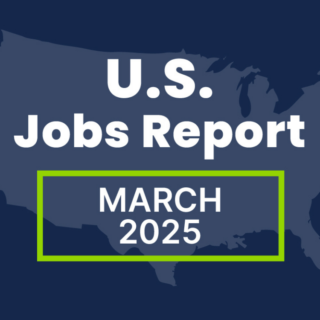In this article, the third in our Multigenerational Workforce series, we’ll be focusing on millennials in the workplace, including what matters to them and how best to engage them.
By 2025, millennials will make up over half of the workforce, essentially replacing retiring Baby Boomers. They’ve already made a huge impact on the way we work, including leveraging technology to revolutionise productivity. As the older millennials enter their 40s, they’re moving into leadership roles and will have even more influence on how organizations operate into the future. So, how can employers harness the power of millennials to drive their businesses forward?
Who are Millennials?
Millennials, less commonly known as Generation Y, follow Gen X and precede Gen Z. Millennials were born between the early 1980s and the mid-1990s during the rise of personal computers and technology, making them tech-savvy. They’re the first generation to come of age in the new millennium, hence the name millennials. They are also known to be values-driven.
Workers from this generation are bound together through their shared experience of financial challenges, including the 2008 Great Recession, which caused a 19% unemployment rate and massive student loan debt among millennials. As a result, members of this generation are more likely to find themselves underemployed or self-employed.
Perceptions and Misperceptions
This generation have been characterized as lazy and narcissistic, labelled as “Generation Me.” Other common perceptions include being easily bored and hopping from job to job rather than staying with one employer. However, this could be due to the anxiety caused from the global financial crash.
Despite these stereotypes, millennials have been described as self-sufficient, solving their own issues and teaching themselves through the internet rather than relying on others for help. They are also known to be confident, curious and open-minded.
What Matters to Millennials in the Workplace?
Digital & Tech Skills
Having been the first generation to grow up in a digital world, millennials have widespread experience of the development of technology, being both the “pioneers and the guinea pigs”.
This has affected the way that they communicate, with 41% of millennials choosing to communicate electronically instead of face-to-face according to a study by PwC. However, they’re also the last generation to have grown up in a world without the internet in every household.
When considering a job, 59% of millennials claim that technology in the workplace is an important factor. Employers are responding to this by encouraging professional use of social media at work and introducing smartphones as an employee benefit.
Mission and Purpose
Millennials thrive in a workplace that is mission-driven, keeping them motivated and inspired. In our recent report, Inside the Candidate Experience, we found that mission and purpose were the second most important factor for millennials when considering a new job. Those who work for companies with this as a priority feel more accomplished. Millennials want to share their employer’s goals and values in order to feel they are contributing to the world.
Collaboration
The move to a more collaborative working environment has been driven by millennials through the use of technology as it’s become more sophisticated. A collaborative environment allows workers to speak their ideas freely and feel a sense of belonging as part of a team. One way that employers are emphasizing collaboration is through mentorship programs, which have been proven to increase the happiness of workers and their productivity.
How Do You Engage Millennials at Work?
As millennials slowly take over as the majority of the workforce, employers must learn strategies to keep them motivated and feeling valued.
1. Be Open and Transparent
Millennials want openness and transparency from their leaders, ensuring their confidence through factual information that can be validated.
Keep millennials productive by creating clear targets are regular opportunities for feedback and praise. In fact, according to the same PwC study, 51% of this demographic believe that frequent or continuous feedback is a must on the job, making up a huge part of what keeps them motivated and engaged in their work.
2. Embrace Teamwork
To manage a multigenerational workforce, leaders must recognize that each generation may need different methods of management. Among millennials, 74% expressed that they are as happy working alongside other generations as with their own. So, it’s unsurprising to find millennials now managing older workers.
However, 34% of millennials felt that their personal drive could be perceived as intimidating to other generations. Effective programs that encourage interactions between different generations are necessary to overcome these misperceptions. For example, millennials thrive in opportunities such as “reverse mentoring,” in which they are able to learn from and teach skills to older workers.
3. Invest in Employee Development
Millennials look at their work as a means to learn and develop, which may be the greatest differentiator between them and all other generations. Indeed, a whopping 87% of millennials say that growth and development opportunities are important to them in a job, compared to just 69% of non-millennials. Offering opportunities to develop technology skills and interpersonal skills will not only help you retain millennial employees, it will help you ensure this important segment of your workforce is ready to step into leadership roles.
4. Trust Them
While millennials want to be supported through feedback and praise, they also want the freedom to “be their own boss.” Flexibility is important to millennials in the workplace.They’ll happily put in the long hours if they believe their work has a purpose, but those hours may not be during the traditional 9-to-5.
Millennials believe that success should be evaluated through productivity, rather than the number of hours they are seen in an office. If they meet the deadlines you set, don’t be concerned about the hours they clock in and out. Focus on creating a flexible work culture to maximize millennial engagement, allowing employees to have more control over their working hours and location.
5. Lead with Your Values
Millennials are searching for more than “just a job” and want to achieve something worthwhile. Akin to Gen Z, millennials believe that companies and their leadership should be contributing positively to society. Strong corporate ethics will encourage loyalty among millennials.
A report from Deloitte found that 54% of millennials research a brand’s environmental impact and polices before accepting a job offer. To keep up with today’s candidates, it’s vital that organizations have updated employer value propositions (EVP) showcase the companies intentions to address social and environmental concerns.
In our multigenerational workplace, each generation will shape the world of work in their own way, and each will need different things from their working lives. Millennials bring commitment and collaboration to the workplace. In return, they want opportunities to grow and collaborate. Organizations that can effectively empower millennials to provide ethical leadership hold key to keeping them engaged.
Find out our top 10 predictions for what we think the working world will look like in 2030 and the best practices to prepare for the future in our Destination 2030 report.




